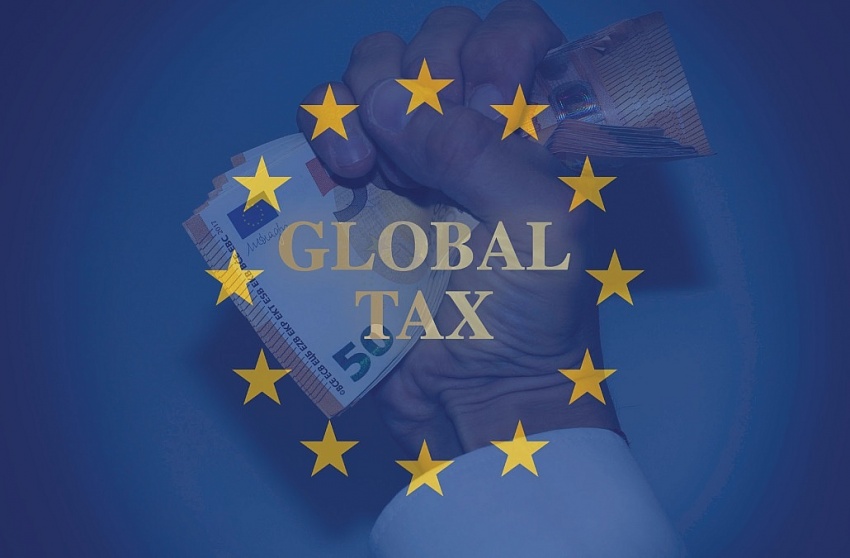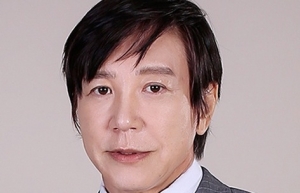Preferential support on cards for GMT alignment
 |
| Preferential support on cards for GMT alignment |
Last week, a workshop on the tax (GMT) was held by the Ho Chi Minh City Development Research Institute and the city’s International Integration Support Centre, in coordination with the Vietnam International Arbitration Centre (VIAC).
Vietnam now applies additional corporate income tax according to global anti-base erosion rules, enacted in January.
VIAC chairman Vu Tien Loc said, “For Vietnam, the implementation of GMT not only creates conditions to increase tax revenue from foreign-invested enterprises, but at the same time directly impacts the attraction policy of foreign investment and Vietnam’s investment environment,” Loc said
According to Pham Binh An, vice director of the Ho Chi Minh City Development Research Institute, in the context of fluctuating global economic growth amid geopolitical tensions, friend-shoring and near-shoring strategies continue to be predicted as prominent trends in 2024 when investors seek investment safety in their portfolios.
“Investment trends in innovation, new technology, new materials, green growth, and sustainable development will continue to draw the attention and acceptance of investors,” An said. “With great economic openness, stable economic growth, and improved infrastructure and trade cooperation, 2024 is considered by many experts to be a breakthrough year for Vietnam in attracting foreign investment.”
Vo Tri Thanh, director of the Institute for Brand Strategy and Competitiveness Research added, “Besides the well-known advantages that Vietnam possesses, it has also been strongly transforming digitally, making green efforts, and trying to catch up with many different aspects of Industry 4.0.”
The country is also facing many challenges in attracting foreign investment, such as rising labour costs combined with a short golden population period, a shortage of skilled labour, unsynchronised infrastructure, and a poor administrative and legal environment.
“In addition to needing general improvement in production and business levels, Vietnam needs a new strategy for attracting foreign investment – from maximising quantity to optimising quality,” Thanh said.
Do Van Su, deputy director general of the Foreign Investment Agency under the Ministry of Planning and Investment, said that to draw in foreign investment, in addition to credit and institutional incentives, Vietnam also needed to have a stable, fair, and transparent legal environment.
“Most importantly, foreign investors must feel secure with strategic confidence in the stability of legal regulations and investment landscape,” Su said.
In addition to investment incentives that do not conflict with international commitments, the National Assembly has assigned the government to develop a decree on management and operation of the investment support fund.
It will include preferential support solutions such as land rent exemption and reduction, credit support, and credit guarantees. In addition, there will be policies on training and development human resources cost, research and development costs, fixed asset investment costs, and production costs of high-tech products.
Su said that according to Organisation for Economic Co-operation and Development (OECD) guidelines, business subsidies are considered inappropriate if the support is not beneficial to all businesses; the support is only beneficial to businesses affected by GMT; the support benefit is caused by the payment of GMT; and benefit policies are issued after the introduction of the GMT.
This fund will be an off-budget state financial fund, and a public service unit under the Ministry of Finance, with legal status, with an account at the state Treasury.
“The fund’s financial sources will come from two main sources: additional corporate income tax revenue following regulations to prevent global tax base erosion, and other legal sources such as the state budget, and those outside the state budget, and other voluntary contributions,” Su said.
The GMT rate rule is a key component of the Base Erosion and Profit Shifting Programme initiated by the OECD, which has been approved by more than 140 countries. Under the resolution, multinational enterprises with consolidated revenues of around $800 million or more in two of the previous four years will be subject to a 15 per cent GMT in Vietnam.
| Tran Thi Thu Hien, deputy general director Hoa Phat Group We propose lowering incentives to be created on land and water surface rent for projects with capital of over VND5 trillion ($208.3 million) located outside preferential areas, rather than $500 million. In addition, we should extend the support period for land rent exemption/reduction for projects that are receiving incentives by location. The current decree draft stipulates that the subjects of support are high-tech enterprises, while Clause 2, Article 18 of the Investment Law 2020 regulates the subjects receiving investment support more broadly, including high-tech enterprises, sci-tech enterprises, and rural agriculture groups. We hope that the draft decree still retains these. We also propose to add businesses that make great contributions to the locality, being affected by the global corporate tax, and deploy projects for key added-value industrial sectors prescribed by the government to the list of beneficiary subjects. Decentralisation of approval for some project groups at different levels should be divided. If every project is submitted to the government, the procedures will be complicated, take a lot of time to approve, and be forced through many levels. This can cause fear for businesses and the fund’s performance will be poor compared to initial expectations. Despite numerous large-scale projects, none of our ventures are eligible for support according to the draft decree. I hope the drafting committee will consider expanding the number of beneficiaries receiving support. Dang Duc Hien, deputy general director Saigon Water Corporation The conditions to receive support in the decree draft are currently too difficult, as total investment must be $500 million or more, and we do not have any such projects. The key difficulty is that the balance of our science fund is about $12.5 million as of the end of 2023. However, we are struggling to spend money in this fund, so the project must be submitted to the Ho Chi Minh City Department of Science and Technology for review and approval before implementation. Currently, we have invested in some projects on innovation such as changing water filtration technology to improve water quality and reduce the cost of raw materials, such as lime, alum, and chlorine. However, these projects have a scale of only about $8.3 million or less, so they are not in the scope of this fund. Other initiatives for increasing scale and forming fixed assets are also not included in the support scale of this draft. Ha Thanh Huong, head of Planning and Investment, Vietnam Posts and Telecommunications Group In the draft decree, the project scale of $500 million is too large and the group (VNPT) does not have any project reaching this amount. In post and telecommunications, according to the Law on Public Investment, projects with an investment of over $33.3 million in group A, and $417 million is a special project. VNPT requests the Ministry of Planning and Investment to consider converting the concept of investment project into a specific programme. For example, we have a 5G investment programme similar to those of Viettel and MobiFone. This programme’s value is about $417 million, but VNPT’s project scales are too small for this requirement. The draft should stipulate whether the venture is to form fixed assets or new assets. For example, VNPT will be assigned to implement the Vinasat satellite launch project by the Ministry of Information and Communications, which is estimated at $208 million. It is too difficult for us to carry out disbursement within three years as stated in the draft, and it is also very complex for VNPT to spend money on research and development. Our fund has about $41.7 million, but on average, it can only disburse about $4.2 million each year, so the requirement related to such spending in the draft decree is too high. |
 | Global Minimum Tax: a call for strategic revisions in Vietnam's special zones Loc Huynh, a lawyer from Dentons LuatViet, a Vietnamese law firm, delves into the implications of the incoming Global Minimum Tax for Vietnam's special zone developers, suggesting strategic shifts towards infrastructure quality, investment costs, and human resources to maintain competitiveness. |
 | Overcoming challenges of global minimum tax Global minimum tax (GMT) now worries businesses due to its impacts on their future activities. Takeo Nakajima, chief representative of the Hanoi Office of the Japan External Trade Organization (JETRO Hanoi) spoke to VIR’s Bich Thuy about Japanese investment trends and solutions to overcome the challenges. |
 | Knock-on effects of global minimum tax regime A global minimum tax (GMT) policy aims to prevent tax avoidance and tax competition, and to ensure that all countries get a fair share of the tax revenues from the global profits of these organisations. The policy consists of two pillars, with Pillar 2 establishing the 15 per cent rate. |
 | Vietnam set to implement global minimum tax Vietnam is poised to adopt global minimum tax (GMT) regulations, a move set to impact 122 foreign investment conglomerates and strengthen the country's fiscal framework in line with international standards. |
 | Vietnam will remain FDI magnet with global minimum tax in place On November 29, the National Assembly of Vietnam approved a resolution on applying additional corporate income tax following the Global Anti-Base Erosion Rules, which is expected to have an impact on foreign direct investment (FDI) inflows into Vietnam. |
What the stars mean:
★ Poor ★ ★ Promising ★★★ Good ★★★★ Very good ★★★★★ Exceptional
Related Contents
Latest News
More News
- Vietnam, New Zealand seek level-up in ties (February 19, 2026 | 18:06)
- Untapped potential in relations with Indonesia (February 19, 2026 | 17:56)
- German strengths match Vietnamese aspirations (February 19, 2026 | 17:40)
- Kim Long Motor and AOJ Suzhou enter strategic partnership (February 16, 2026 | 13:27)
- Haiphong welcomes long-term Euro investment (February 16, 2026 | 11:31)
- VIFC in Ho Chi Minh City officially launches (February 12, 2026 | 09:00)
- Norfund invests $4 million in Vietnam plastics recycling (February 11, 2026 | 11:51)
- Marico buys 75 per cent of Vietnam skincare startup Skinetiq (February 10, 2026 | 14:44)
- SCIC general director meets with Oman Investment Authority (February 10, 2026 | 14:14)
- G42 and Vietnamese consortium to build national AI infrastructure (February 09, 2026 | 17:32)

 Tag:
Tag:




















 Mobile Version
Mobile Version